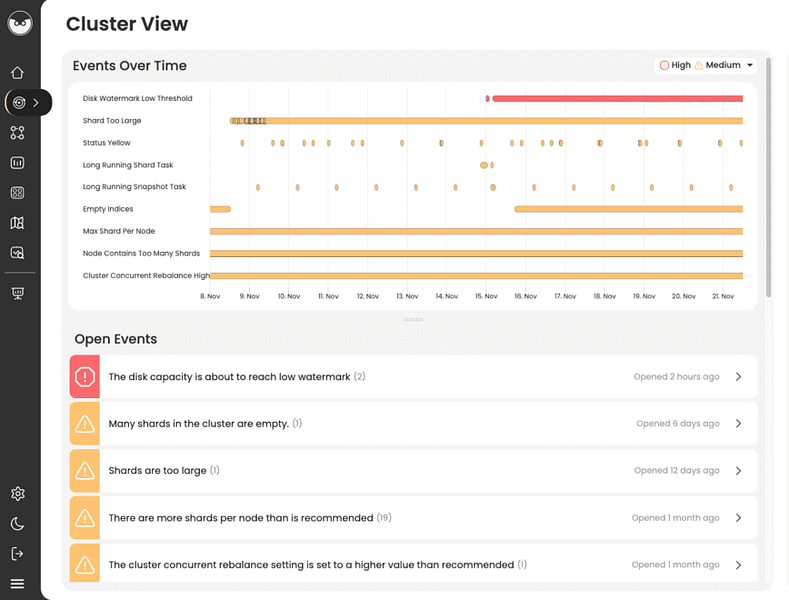Opster Team
Last updated: Jan 23, 2023
| 1 min readIn addition to reading this guide, we recommend you run the Elasticsearch Health Check-Up. It will detect issues and improve your Elasticsearch performance by analyzing your shard sizes, threadpools, memory, snapshots, disk watermarks and more.The Elasticsearch Check-Up is free and requires no installation.
To review your configuration of nodes in Elasticsearch, we recommend you try the AutoOps platform. Aside from outlining your configuration, it will help you determine the ideal number of each type of node for your use case and help you avoid future issues involving your nodes. Try it for free.
Overview
To put it simply, a node is a single server that is part of a cluster. Each node is assigned one or more roles, which describe the node’s responsibility and operations. Data nodes store the data, and participate in the cluster’s indexing and search capabilities, while master nodes are responsible for managing the cluster’s activities and storing the cluster state, including the metadata.
While it is possible to run several node instances of Elasticsearch on the same hardware, it’s considered a best practice to limit a server to a single running instance of Elasticsearch.
Nodes connect to each other and form a cluster by using a discovery method.
Roles
Master node
Master nodes are in charge of cluster-wide settings and changes – deleting or creating indices and fields, adding or removing nodes and allocating shards to nodes. Each cluster has a single master node that is elected from the master eligible nodes using a distributed consensus algorithm and is reelected if the current master node fails.
Coordinating (client) node
There is some confusion in the use of coordinating node terminology. Client nodes were removed from Elasticsearch after version 2.4 and became coordinating nodes.
Coordinating nodes are nodes that do not hold any configured role. They don’t hold data and are not part of the master eligible group nor execute ingest pipelines. Coordinating nodes serve incoming search requests and act as the query coordinator running query and fetch phases, sending requests to every node that holds a shard being queried. The coordinating node also distributes bulk indexing operations and route queries to shards based on the node’s responsiveness.
Related log errors to this ES concept
Avoid Elasticsearch Node Issues
Node issues in Elasticsearch can be detected and solved automatically with AutoOps.
Try Free
Matt Watson
CTO at Stackify





